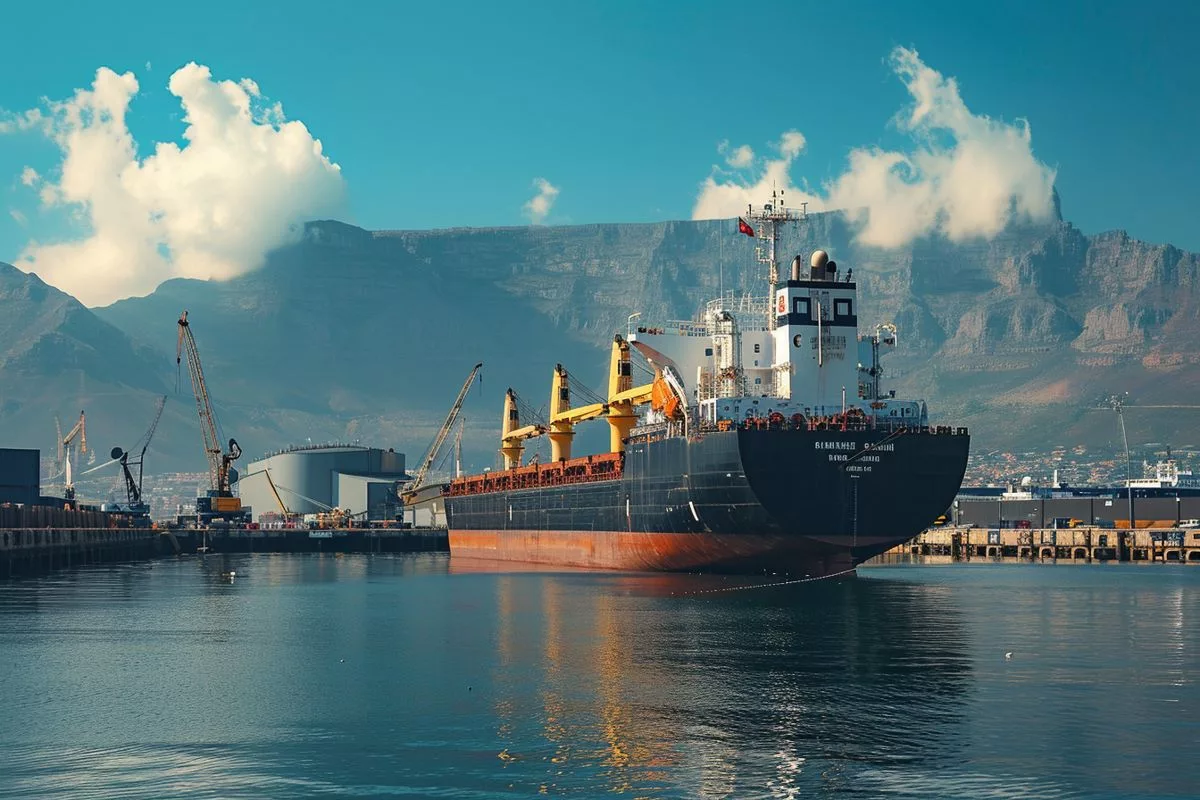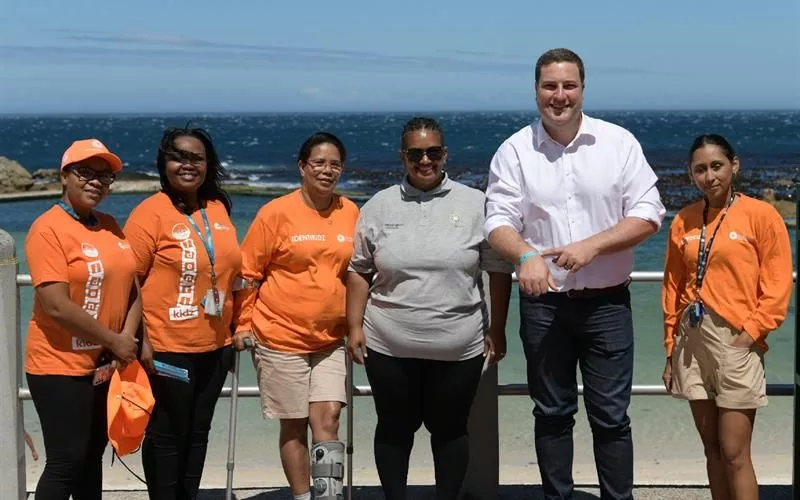The Port of Cape Town needs private sector involvement to improve its operational inefficiencies and global ranking. Private sector participation could result in an additional R6 billion in exports over five years, 20,000 jobs, and more tax revenue. The city is committed to collaborating with the national government and private firms to foster sustainable growth and development, drawing upon the knowledge, tactics, and innovations of diverse stakeholders. The urgent need for a private sector partnership has been highlighted by the port’s recent global ranking and the absence of a commitment from the national government.
The Port of Cape Town urgently needs private sector involvement to address operational inefficiencies and improve its global ranking. The Western Cape’s Department of Economic Development and Tourism estimates that private sector participation could stimulate an additional R6 billion in exports over five years, resulting in roughly 20,000 direct and indirect jobs and more than R1,6bn in extra tax revenue. Collaboration and interdependence between diverse stakeholders are necessary for sustainable growth and development.
The Port of Cape Town serves as a critical junction in global commerce and presently finds itself in the midst of an important debate. The Cape Town city authority has recently demanded a definite timeline for integrating private sector partners into the port’s operations. This demand arises from the current operational inefficiencies and a decreasing global rank. The call for greater private sector participation is driven by the desire for economic development, enhancement of trading capabilities, and job creation.
An Urgent Need for Private Sector Involvement
The city’s spokesperson on economic growth, Alderman James Vos, has echoed this pressing need, emphasizing the imminent private sector partnership at the Port of Durban in April. There has been a noticeable absence of a similar commitment for the Cape Town port from the national government. The port’s urgent need for a corresponding partnership has been highlighted by a major shipping firm’s recent choice to bypass the Cape Town port for certain operations.
The non-disclosure of the Freight Logistics Roadmap has been a crucial part of this call for action. The Public Enterprises Minister, Pravin Gordhan, has been criticized for a lack of transparency despite numerous requests. As Alderman Vos asserts, the city will continue to gather stakeholders, including private firms, to lobby the government for clear and definite timelines.
The Impact of Global Rankings and Economic Potentials
In addition to the economic ramifications, the need for private sector participation has been amplified by the port’s most recent global standing. Cape Town’s port was ranked 344 out of 348 ports surveyed in the 2022 World Bank’s container port performance index. This striking statistic serves as an alarm for the national government to act decisively for the city’s trading prosperity.
According to the Western Cape’s Department of Economic Development and Tourism, involving the private sector could stimulate an additional R6 billion in exports over five years. This would result in roughly 20,000 direct and indirect jobs and more than R1,6bn in extra tax revenue. This potential economic growth is a captivating opportunity to address the city’s present difficulties.
The Path Forward: Collaboration and Interdependence
Rajesh Dana, the manager of Cape Town’s port, has made significant progress in rectifying the ongoing technical issues obstructing port deliveries. Nonetheless, a holistic solution will only emerge once the private sector has a direct role in port operations.
As Alderman Vos highlighted, this significant endeavor requires cooperation and interdependency, drawing upon the knowledge, tactics, and innovations of diverse stakeholders. The port’s logistical challenges have a ripple effect on the city’s overall economy, demanding prompt government intervention and thoughtful partnerships with the private sector.
The city is therefore committed to collaborating with the national government and private firms, capitalizing on collective strengths and resources to foster sustainable growth and development. If the government heeds the call for distinct timelines and wise private sector involvement, the transformation of the Port of Cape Town could indeed act as a shining example of economic prosperity.
1. Why does the Port of Cape Town need private sector involvement?
The Port of Cape Town needs private sector involvement to improve its operational inefficiencies and global ranking, and to stimulate economic growth by way of additional exports, jobs, and tax revenue.
2. What is the estimated economic potential of private sector involvement in the Port of Cape Town?
According to the Western Cape’s Department of Economic Development and Tourism, private sector participation could stimulate an additional R6 billion in exports over five years, resulting in roughly 20,000 direct and indirect jobs and more than R1,6bn in extra tax revenue.
3. Why is the urgent need for a private sector partnership highlighted?
The urgent need for a private sector partnership has been highlighted by the port’s recent global ranking and the absence of a commitment from the national government. A major shipping firm’s recent choice to bypass the Cape Town port for certain operations has also added to the urgency.
4. What is the Freight Logistics Roadmap?
The Freight Logistics Roadmap is a plan for the transportation of goods and services in South Africa. The non-disclosure of the roadmap has been a crucial part of the call for private sector involvement in the Port of Cape Town.
5. What is the path forward for the Port of Cape Town?
The path forward for the Port of Cape Town involves collaboration and interdependence between diverse stakeholders, drawing upon the knowledge, tactics, and innovations of the national government and private firms. The port’s logistical challenges have a ripple effect on the city’s overall economy, demanding prompt government intervention and thoughtful partnerships with the private sector.
6. What is the impact of the Port of Cape Town’s global ranking?
Cape Town’s port was ranked 344 out of 348 ports surveyed in the 2022 World Bank’s container port performance index. This ranking highlights the urgent need for the national government to act decisively for the city’s trading prosperity.












